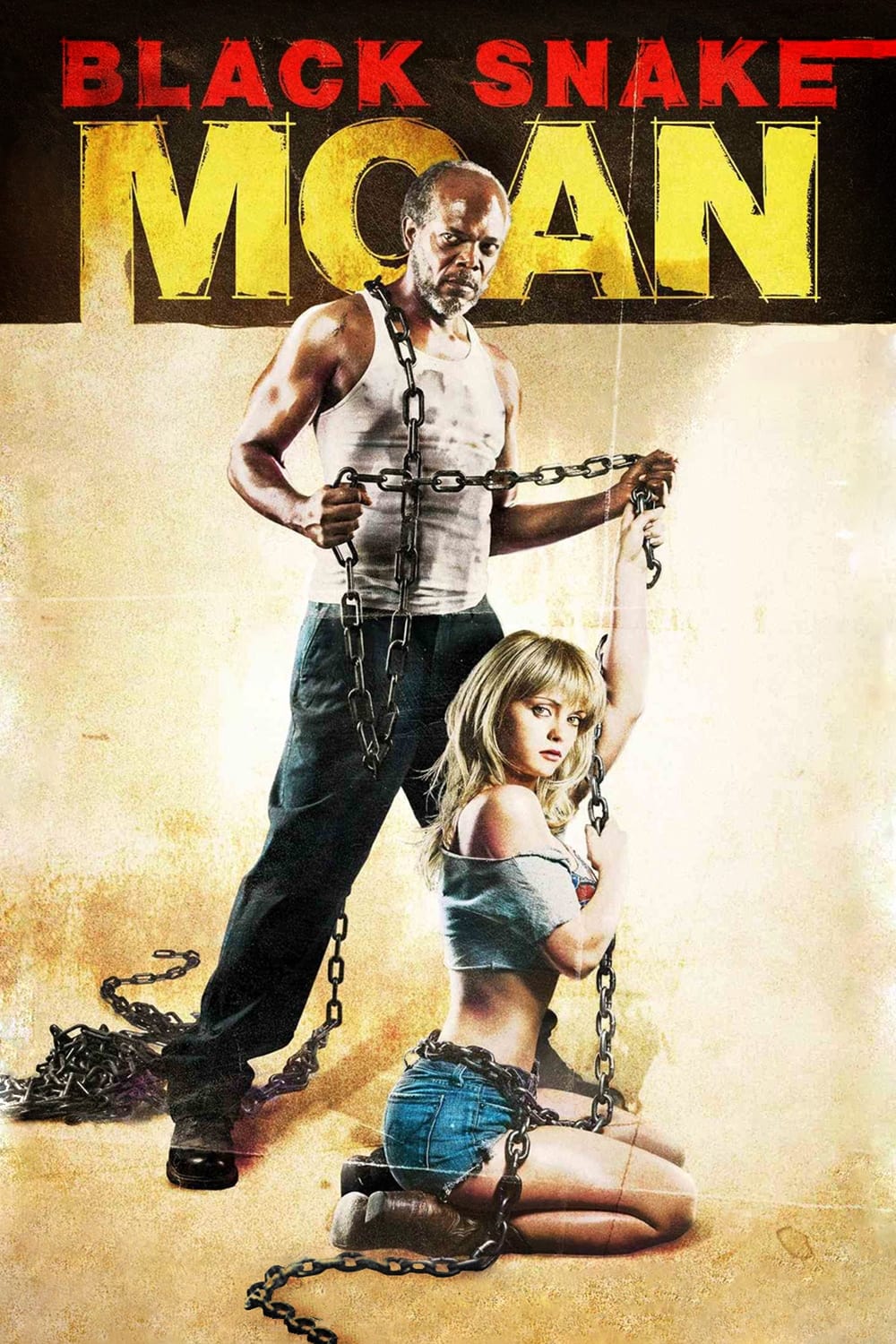
A God-fearing bluesman takes to a wild young woman who, as a victim of childhood sexual abuse, is looking everywhere for love, but never quite finding it.
19 Jan Black Snake Moan (2006)
Too Costly
All films cost the viewer something. We have to relinquish certain core parts of ourselves in a negotiation with the filmmaker, as a contract to collaborate with him/her in a shared adventure. Never, ever is this cost slight; in fact the ability to place a substantial part of one’s life in the hands of another is pretty dangerous stuff.
We don’t see the magnitude of this commitment, because usually the bargain is a wash. You commit, go for the ride and come out slightly ahead, with a balance we call “entertainment.” Sometimes we encounter something that changes us profoundly. This vulnerability and ability to be transformed is the curse and blessing of being human.
But what if the experience is a net loss? What if we give too much of the most valuable parts of ourselves, some of the essence, and get little back? I think that is what has happened here, at least with me.
The story is a typical redemption story: three people redeemed. It has an atypically unrealistic happy ending, but we often overlook that offense. It has a twist in that it is reverse stereotyped: the african-americans are human and wise, with the white characters drawn from a comic strip. There are possibilities, but there are risks as well, because when you invert things to make them visible, you have to do more than the flawed model you are inverting. Science fiction often does this: pulls some dynamic out of the background for attention, then provides insight by manipulation.
Not so here. The story follows the tritest of paths. The innovation is that we are not just tied to the Bagger Vance notion of the inherent wisdom of the Black man (or Indian), but we do so via the route of blues music.
This is where it becomes costly, because music is so viscerally connected to us. It is so much so, that we have to build stories to even talk to ourselves about it. Thus, “country” reflects rugged individuals, directly inherited from cinema, “rock” has that story of extreme commitment, and “blues”? Well, we put a story of tragedy on it. And not just any tragedy, but the deepest we can imagine and impose on the music when listening.
Said another way, a blues song touches us because it gives us an excuse to replay our own most costly movie. We speak of soul and personal anxieties. We raise it all and because of the contract, we raise it all the way.
So this film asks us to spend a lot, to put a lot on the line. And it gives us back nothing, except the chuckle over having captured our dime/time.
Posted in 2011
Ted’s Evaluation — 1 of 3: You can find something better to do with this part of your life.


No Comments